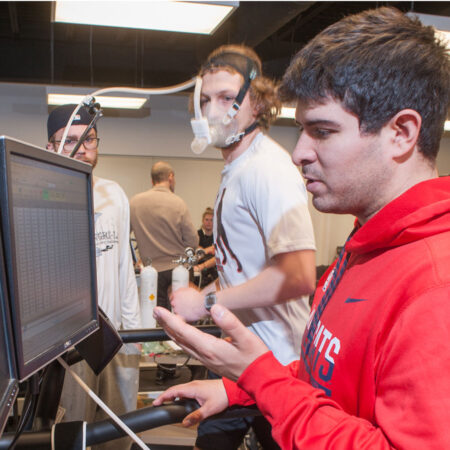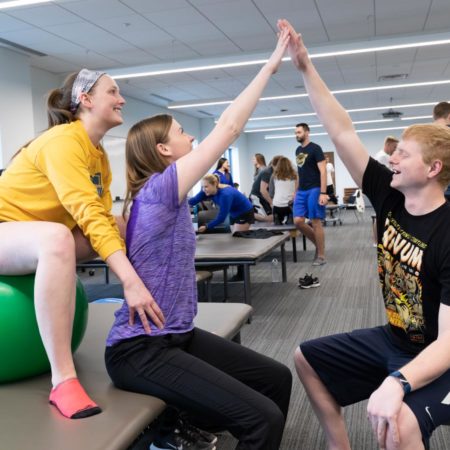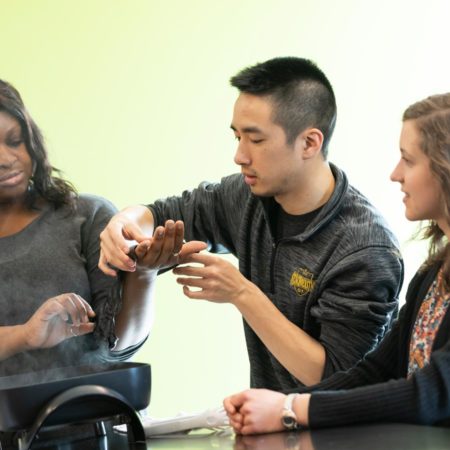Bachelor of Science Exercise Physiology
When you work out, you love to push your limits: run farther, pedal harder, lift more. Imagine turning that passion into a career. As an exercise physiologist, you can inspire and coach people to reach their highest physical fitness and health levels.

“The program prepared me for both clinical and performance-based employment.”
Benedictine Scholarship
All new first-year applicants to St. Scholastica will be awarded either the Benedictine Scholarship or the Access Award, upon admission to the College.
Financial Aid
100% of traditional incoming undergraduates receive some type of scholarships. The average for scholarships, grants, and/or loans is $31,841.
Meet Our Faculty
Experienced, Dedicated, and Distinguished Educators
Expect to be heard, to be challenged, and to be involved. St. Scholastica faculty are world-class scholars and experts in their field who invest in your success. Our values of community, respect, stewardship, hospitality, and love of learning reflect our faculty’s commitment to lifting up others and celebrating our common humanity.





